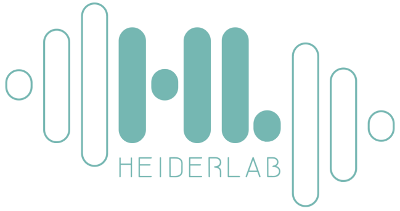CORona Drug InTEractions database
Discovery of Potential Multi-Target-Directed Ligands by Targeting Host-specific SARS-CoV-2 Structurally Conserved Main Protease$.
Joshi RS, Jagdale SS, Bansode SB, Shankar SS, Tellis MB, Pandya VK, Chugh A, Giri AP, Kulkarni MJ
Abstract
Severe acute respiratory syndrome coronavirus 2 (SARS-CoV-2) infection has resulted in the current COVID-19 pandemic. Worldwide this disease has infected over 2.5 million individuals with a mortality rate ranging from 5 to 10%. There are several efforts are going on in the drug discovery to control the SARS-CoV-2 viral infection. The main protease (MPro) plays a critical role in viral replication and maturation, thus can serve as the primary drug target. To understand the structural evolution of MPro, we have performed phylogenetic and Sequence Similarity Network analysis, that depicted divergence of Coronaviridae MPro in five clusters specific to viral hosts. This clustering was corroborated with the comparison of MPro structures. Furthermore, it has been observed that backbone and binding site conformations are conserved despite variation in some of the residues. These attributes can be exploited to repurpose available viral protease inhibitors against SARS-CoV-2 MPro. In agreement with this, we performed screening of ∼7100 molecules including active ingredients present in the Ayurvedic anti-tussive medicines, anti-viral phytochemicals and synthetic anti-virals against SARS-CoV-2 MPro as the primary target. We identified several natural molecules like δ-viniferin, myricitrin, taiwanhomoflavone A, lactucopicrin 15-oxalate, nympholide A, afzelin, biorobin, hesperidin and phyllaemblicin B that strongly binds to SARS-CoV-2 MPro. Intrestingly, these molecules also showed strong binding with other potential targets of SARS-CoV-2 infection like viral receptor human angiotensin-converting enzyme 2 (hACE-2) and RNA dependent RNA polymerase (RdRp). We anticipate that our approach for identification of multi-target-directed ligand will provide new avenues for drug discovery against SARS-CoV-2 infection.
Source: PubMed
Related molecules
Related interactions
| Target | Target affiliation | Drug | Type | Result |
|---|---|---|---|---|
| Target | Target affiliation | Drug | Type | Result |
| Name | Synonyms | Genes | Origin |
|---|---|---|---|
| Name | Synonyms | Genes | Origin |
| Name | Synonyms | PubChem | DrugBank | RCSB PDB | ATC |
|---|---|---|---|---|---|
| Name | Synonyms | PubChem | DrugBank | RCSB PDB | ATC |
| Title | Authors | DOI | Source | Article type | Date |
|---|---|---|---|---|---|
| Title | Authors | DOI | Source | Article type | Date |
| Title | Status | Phases | Start Date | Prim. Comp. Date | Comp. Date | First Post. Date |
|---|---|---|---|---|---|---|
| Title | Status | Phases | Start Date | Prim. Comp. Date | Comp. Date | First Post. Date |
CORDITE (CORona Drug InTEractions database) collects and aggregates data from PubMed, MedRxiv, BioRxiv, ChemRxiv and PMC for SARS-CoV-2. Its main focus is set on drug interactions either addressing viral proteins or human proteins that could be used to treat COVID. It collects and provides up-to-date information on computational predictions, in vitro, as well as in vivo study data.
The information provided is for research only and we cannot guarantee the correctness of the data.
Please contact dominik.heider@uni-muenster.de for further information.
Programmable access
There is an open API for access programmatically to the database. The API will print a JSON output:
- Interactions
https://cordite-api.uni-muenster.de/api.php?action=list&table=interaction
- Targets
https://cordite-api.uni-muenster.de/api.php?action=list&table=target
- Drugs
https://cordite-api.uni-muenster.de/api.php?action=list&table=drug
- Publications
https://cordite-api.uni-muenster.de/api.php?action=list&table=publication
- Clinical trials
https://cordite-api.uni-muenster.de/api.php?action=list&table=clinical_trial

